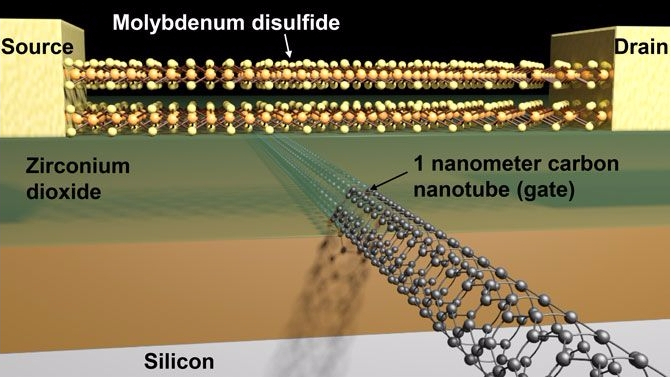Transistor size is one of the most important parts in advancing computer technology. For years, scientists have been in a race to make them smaller, limited in part by the laws of physics that allow a 5-nanometer threshold on transistor gate size among traditional semiconductors. Smaller transistors mean more room on chips, which translates to more powerful computers.
A team at the Department of Energy’s Lawrence Berkeley National Laboratory has made breakthrough news by circumventing the limit and successfully building a functional transistor gate only 1 nanometer long – the smallest working transistor ever. In comparison, a strand of human hair is around 50,000 nanometers thick, Phys.org reports.
Ali Javey, the lead researcher on the project from the Electronic Materials program in Berkeley Lab’s Materials Science Division, says,
We made the smallest transistor reported to date.
He adds, “The gate length is considered a defining dimension of the transistor. We demonstrated a 1-nanometer-gate transistor, showing that with the choice of proper materials, there is a lot more room to shrink our electronics.”
Using carbon nanotubes and molybdenum disulfide (MoS2) to make a sub-7nm transistor, where the MoS2 works as the semiconductor and the hollow carbon nanotube is the gate that controls electron flow. MoS2 is part of a group of materials that have shown vast potential for use in LEDs, lasers, solar cells, and other modern electronic devices.
With this step, the Berkeley team has beaten the like of Intel, which had previously announced its intention to look into other materials for semiconductors, The Verge reports. The research is still in its early stages, as the researchers explore ways to mass produce their 1 nanometer transistors and develop a chip using them. The researchers will continue working on the project to develop more viable methods for practical use.
But the proof of concept is there – new materials can be used to make tiny transistors that can provide more efficiency and power in future computers.
The study will be published in the journal Science.
























